Displaying 291-300 of 893 results
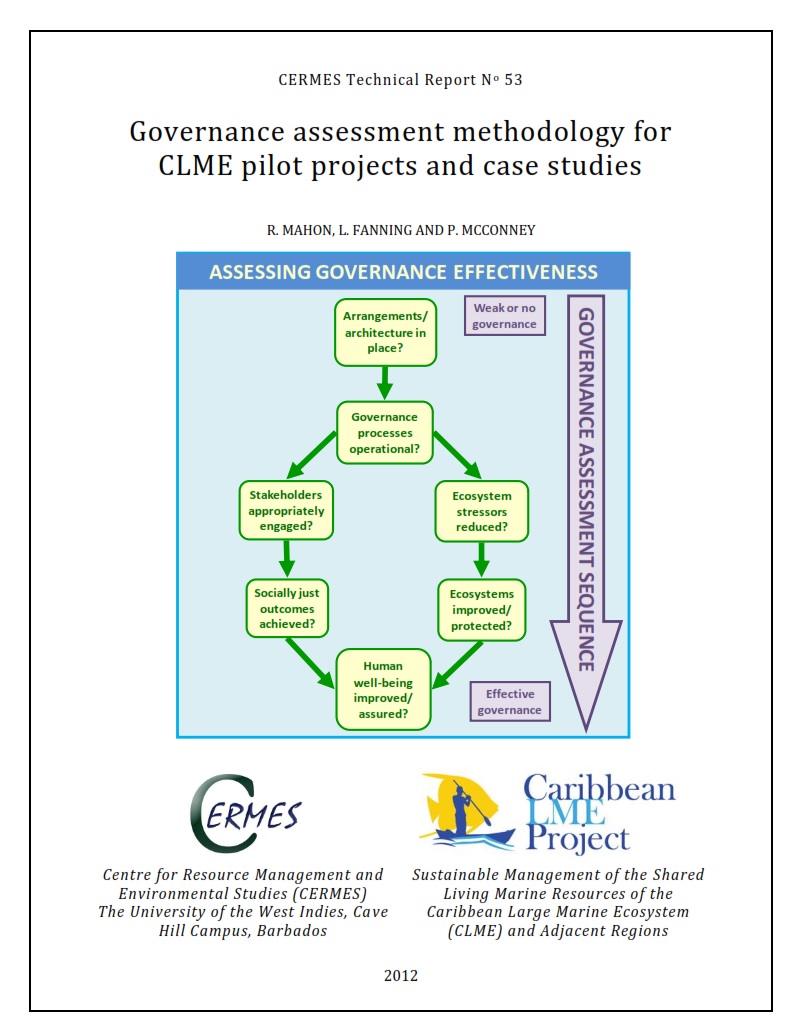
Governance assessment methodology for CLME pilot projects and case studies
This document offers a detailed explanation on Governance assessment methodology for CLME pilot projects and case studies.
 5
5


 Report issue
Report issue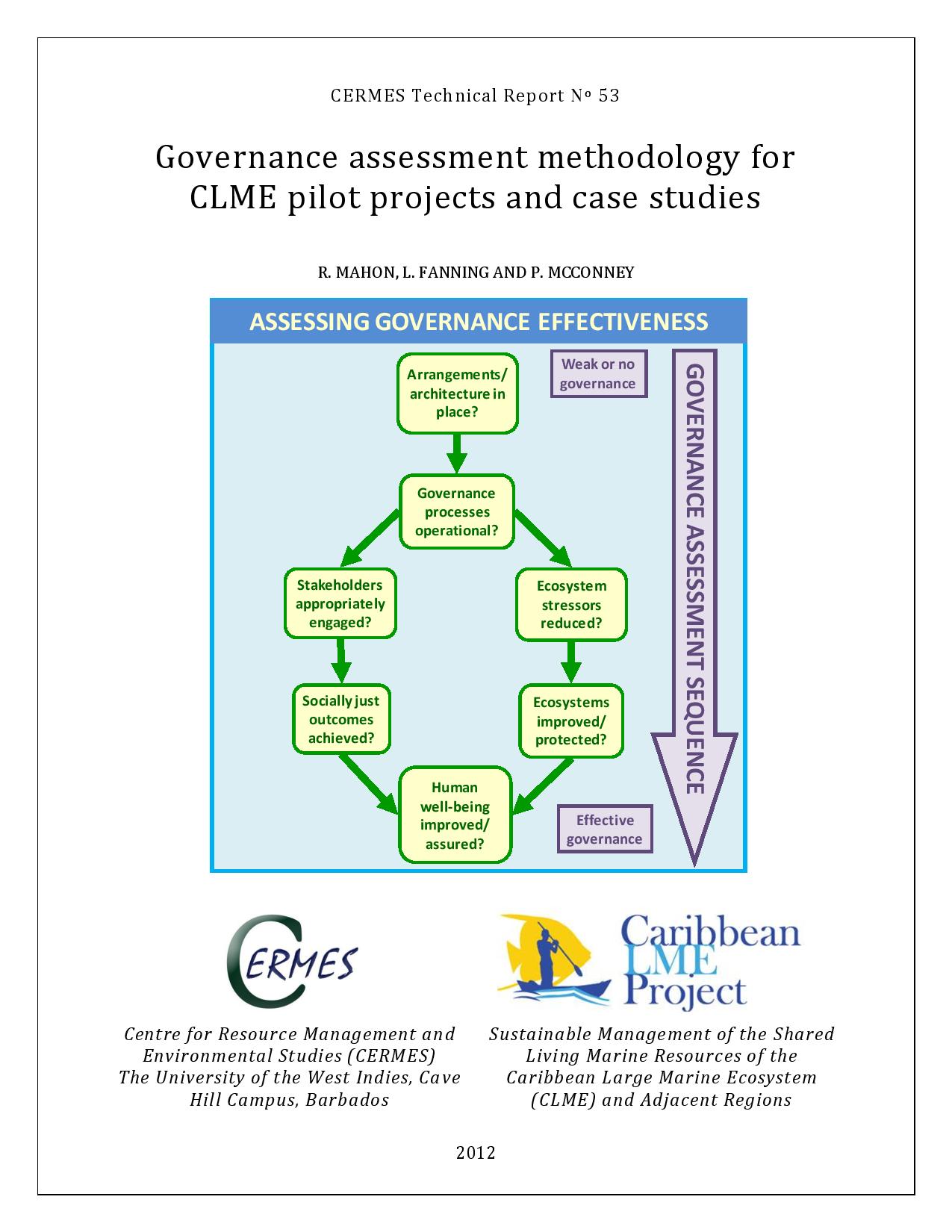
Governance assessment methodology for CLME pilot projects and case studies. Centre for Resource Management and Environmental Studies, University of the West Indies, Cave Hill Campus, Barbados, CERMES Technical Report No 53
The Caribbean Large Marine Ecosystem and Adjacent Areas (CLME) Project has identified weak governance as a root cause of the problems facing these social ecological systems (SESs). Therefore, the CLME Project has a strong emphasis on assessing LMR governance systems and on proposing ways of strengthening them. This document outlines the approach to governance assessment that was used to assess a variety of SES situations in the CLME Project area as reflected in the CLME Case Studies and Pilot Projects. The methodology was adapted from the methodology developed for the GEF Transboundary Waters Assessment Programme (TWAP). This is based on a multilevel, policy-cycle-based Large Marine Ecosystem (LME) Governance Framework that incorporates and addresses the issues of scale, complexity and interaction inherent in most LMEs.
 4
4


 Report issue
Report issue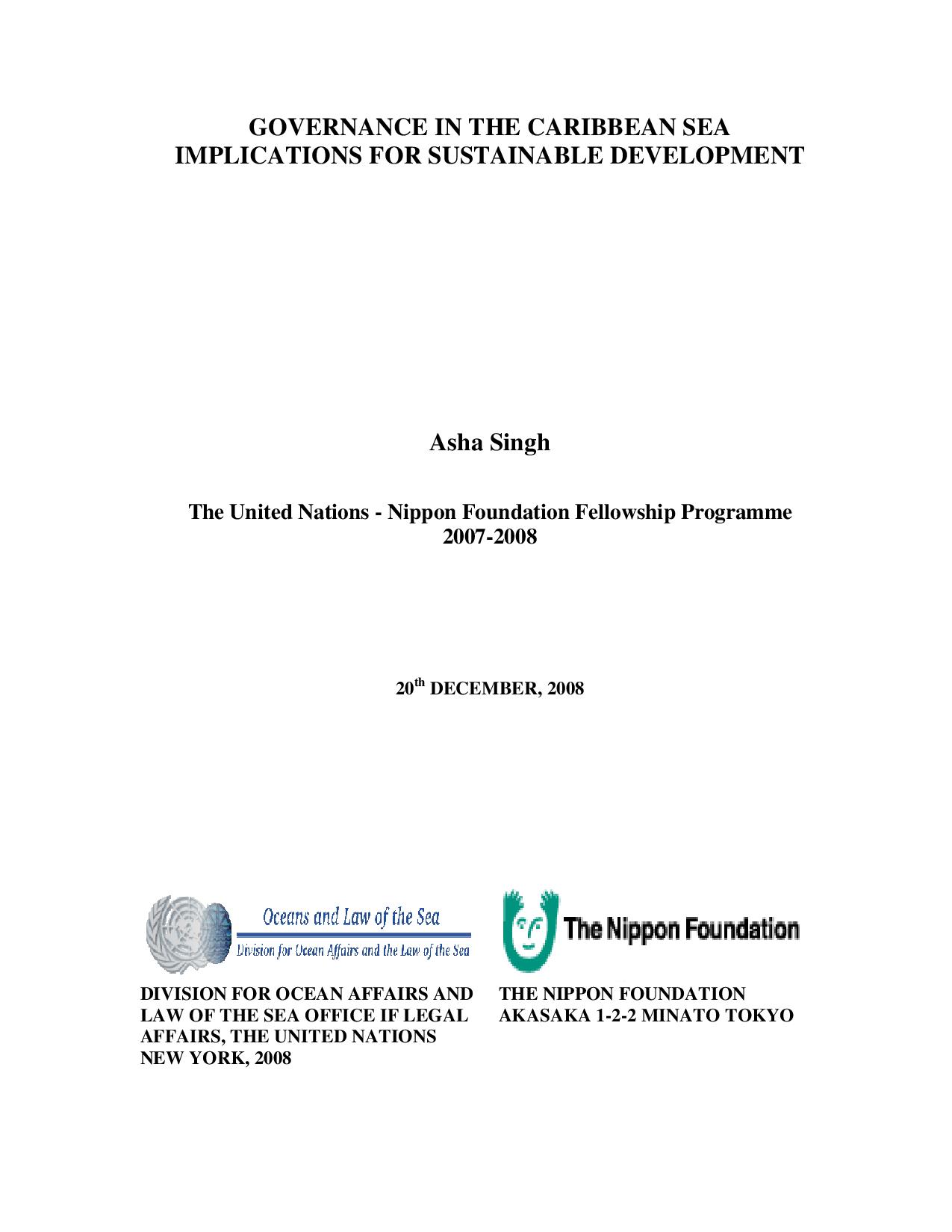
Governance in The Caribbean Sea Implications For Sustainable Development
To date no abstract has been uploaded for this document
 3
3


 Report issue
Report issue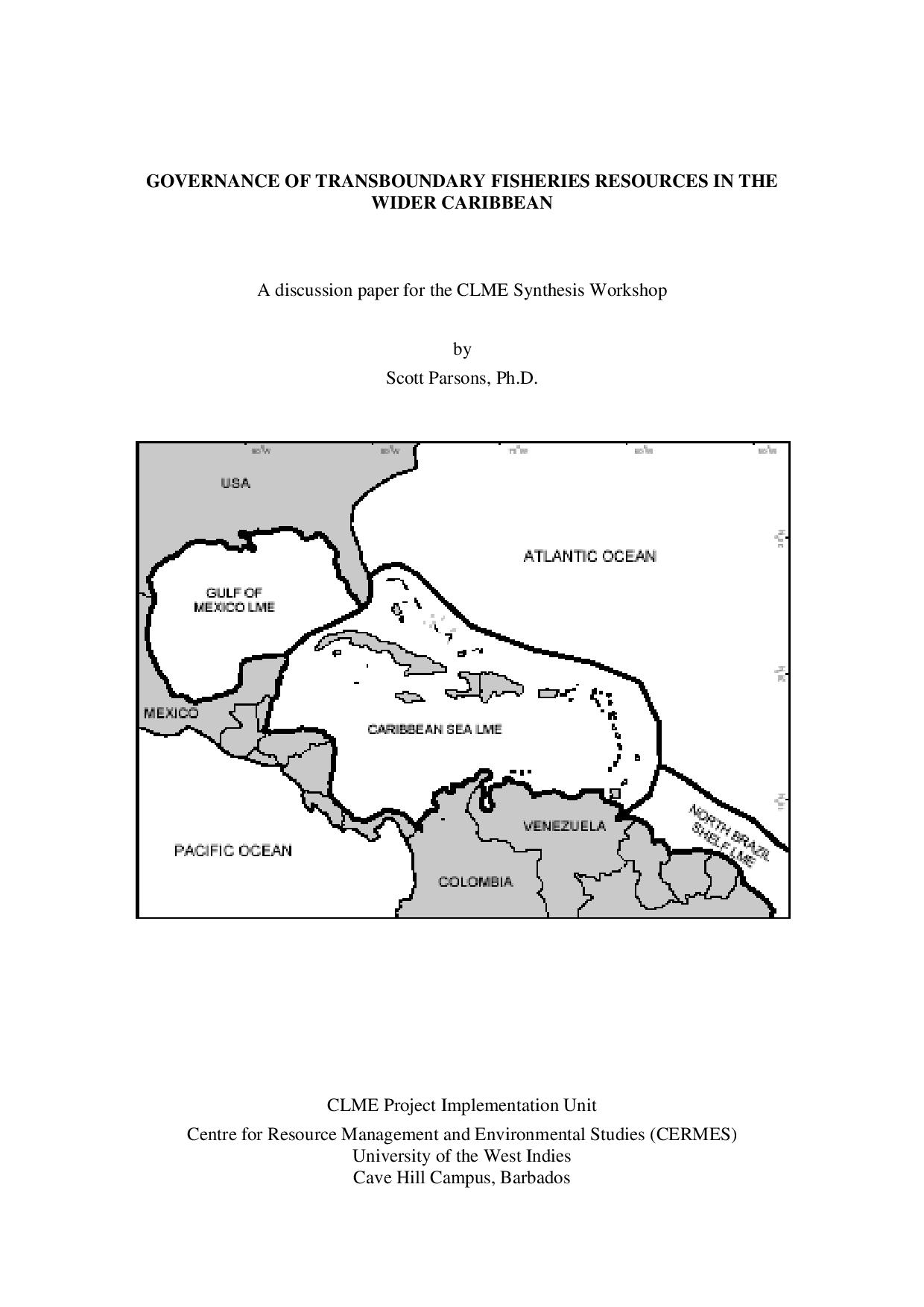
Governance of transboundary fisheries resources in the wider caribean – A discussion paper for the CLME synthesis workshop
The present study focuses on the current arrangements and options for future arrangements for governance of transboundary fisheries resources in the Wider Caribbean. It was undertaken as a thematic study to provide background analysis for consideration of fisheries governance issues in the preparation of a Transboundary Diagnostic Analysis and development of a proposal for a Caribbean Large Marine Ecosystem (CLME) project for funding by the GEF/World Bank.
 4
4


 Report issue
Report issue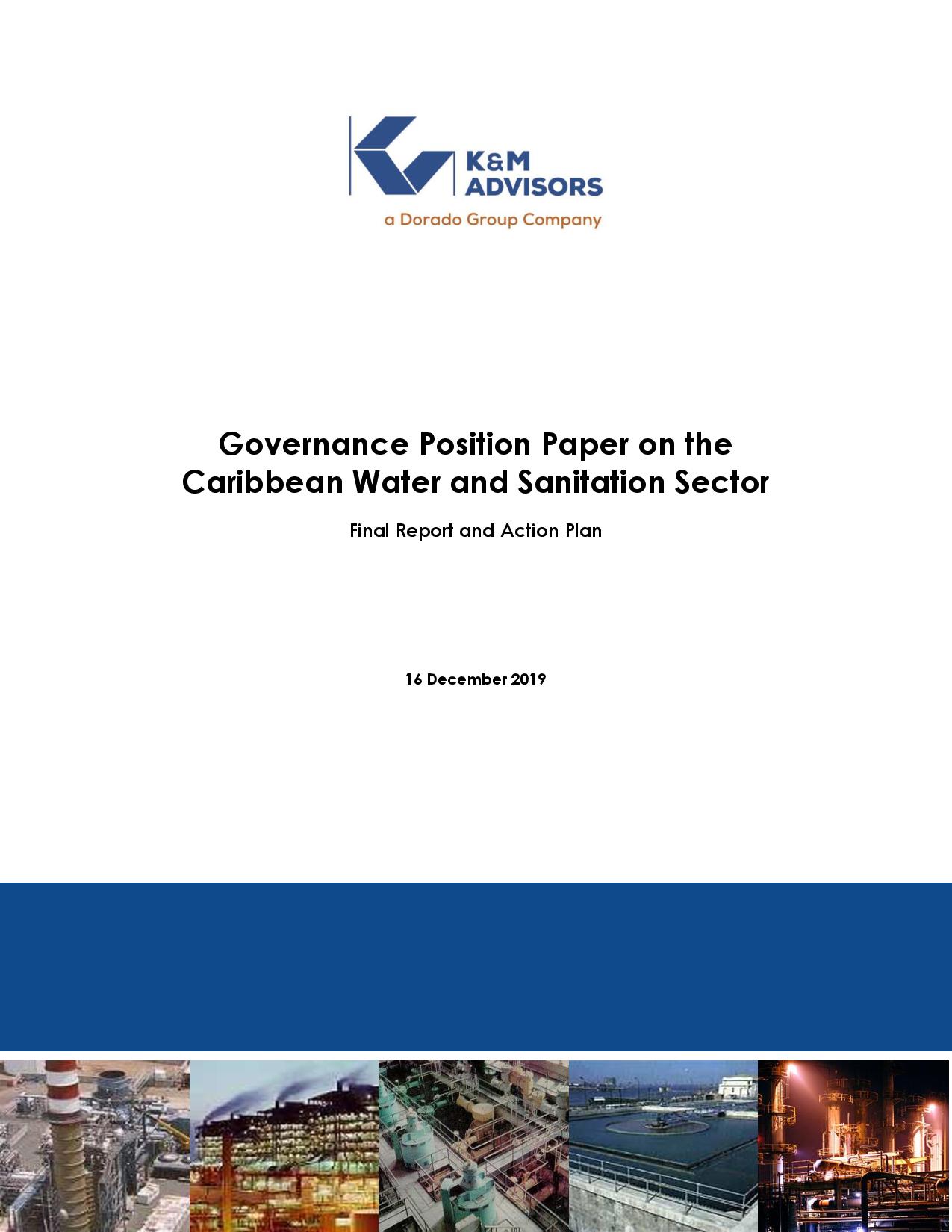
Governance Position Paper on the Caribbean Water and Sanitation Sector
The main objective of this report is to assess the performance of the water and sanitation sector in the Caribbean and provide recommendations to improve governance of the sector in the region. This report is composed of two parts: the baseline report and the action plan. The baseline report assesses the operating efficiency, financial performance, policies, and institutions of the water and sanitation sectors in The Bahamas, Barbados, Belize, Guyana, Jamaica, Suriname, and Trinidad and Tobago. The action plan provides recommendations on how to improve governance of the water and sanitation sector in those countries.
 4
4


 Report issue
Report issue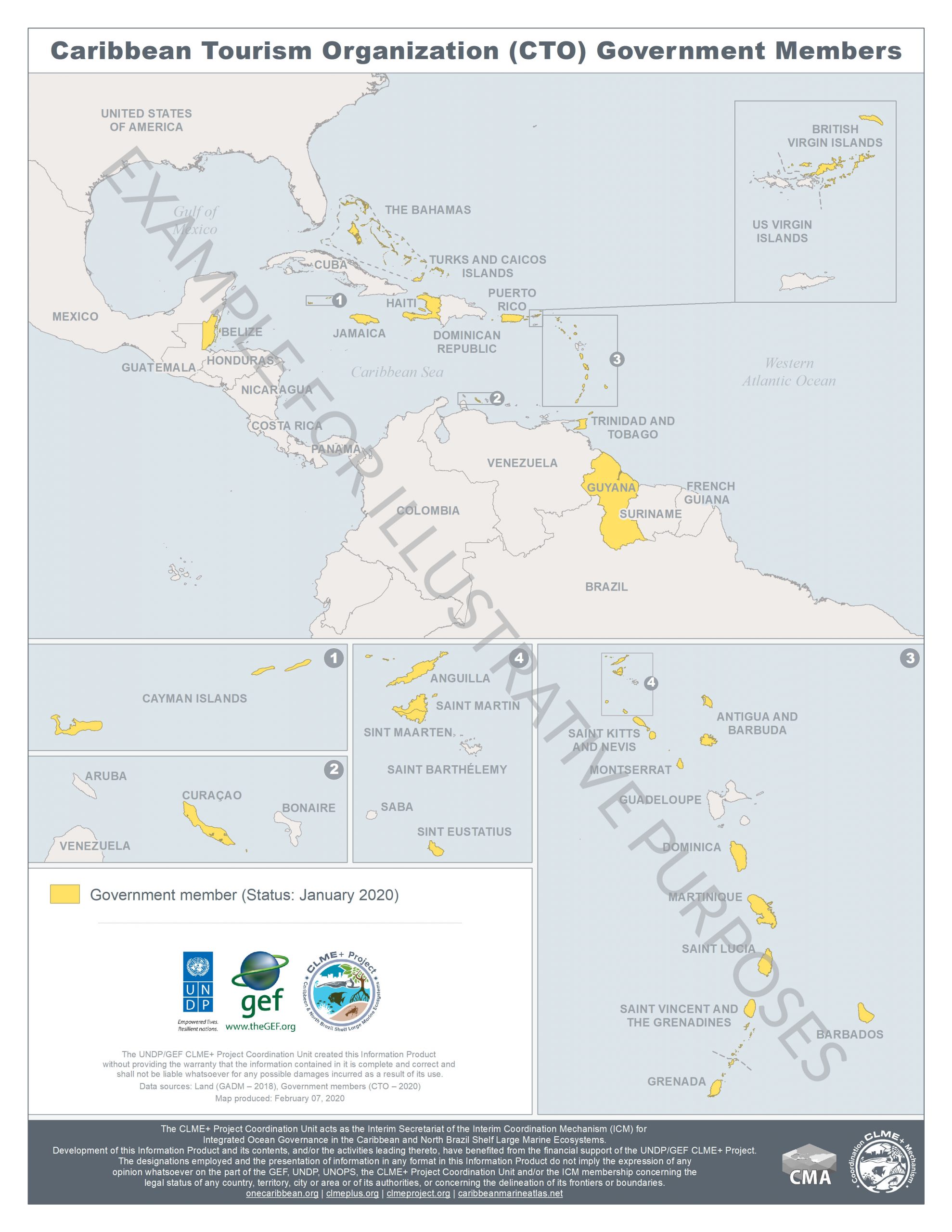
Government Members of the Caribbean Tourism Organization (CTO)
To date no abstract has been uploaded for this document
 5
5


 Report issue
Report issue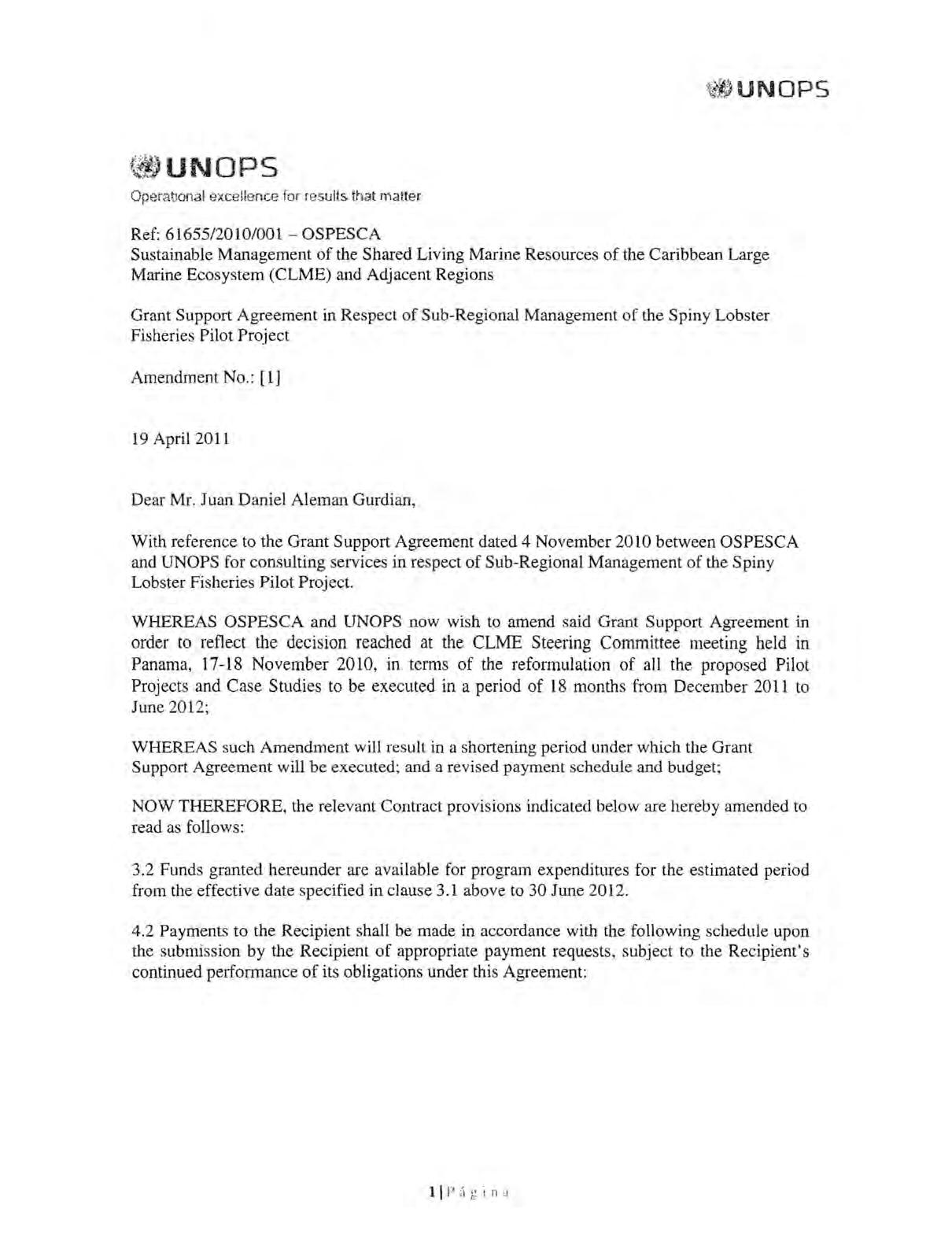
Grand Support Agrrement in Respect of Sub-Regional Management of the Spiny Lobster Fisheries Pilot Project – Sustainable Management of the shared living marine resources of the caribbean large marine ecosystem (CLME)
To date no abstract has been uploaded for this document
 3
3


 Report issue
Report issue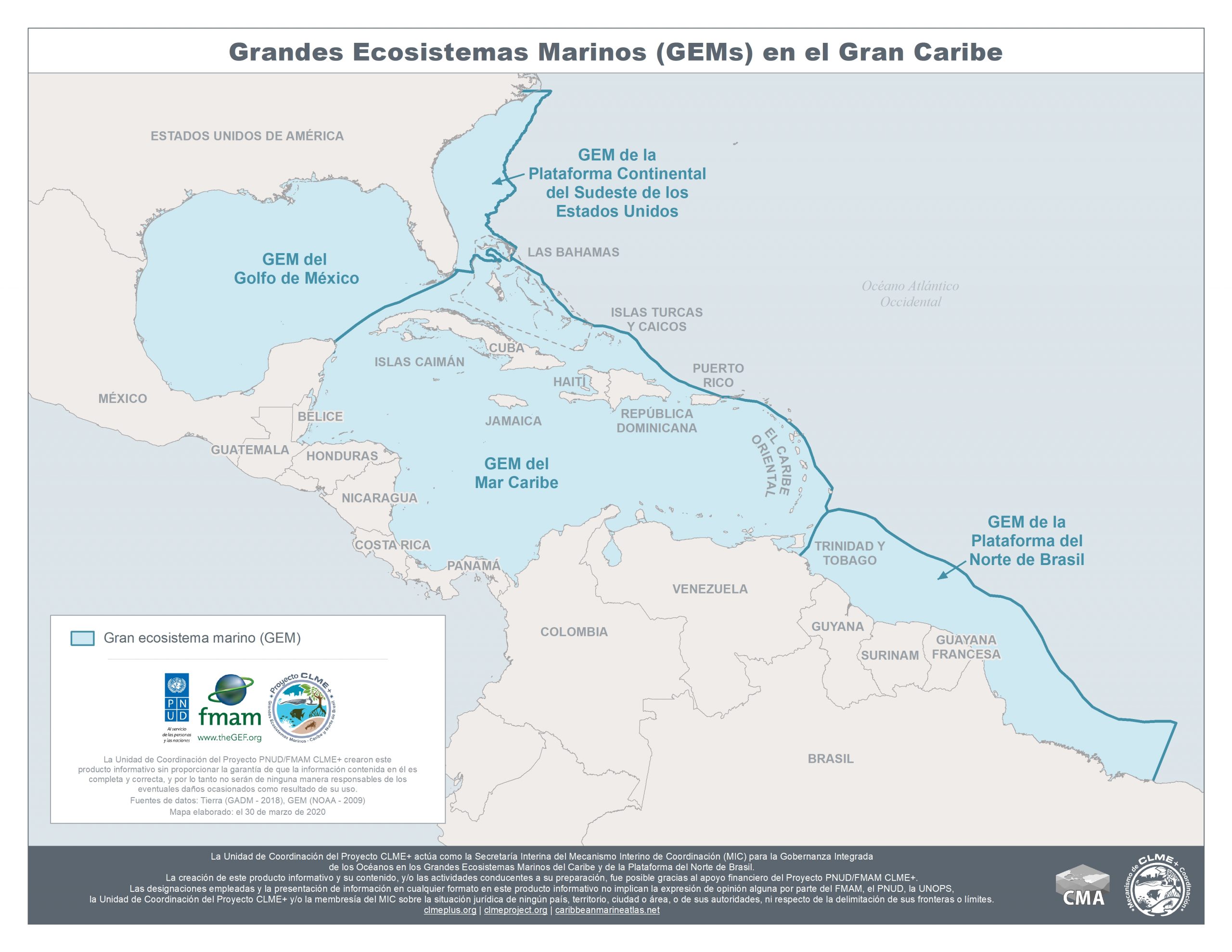
Grandes Ecosistemas Marinos (GEMs) en el Gran Caribe
To date no abstract has been uploaded for this document
 5
5


 Report issue
Report issue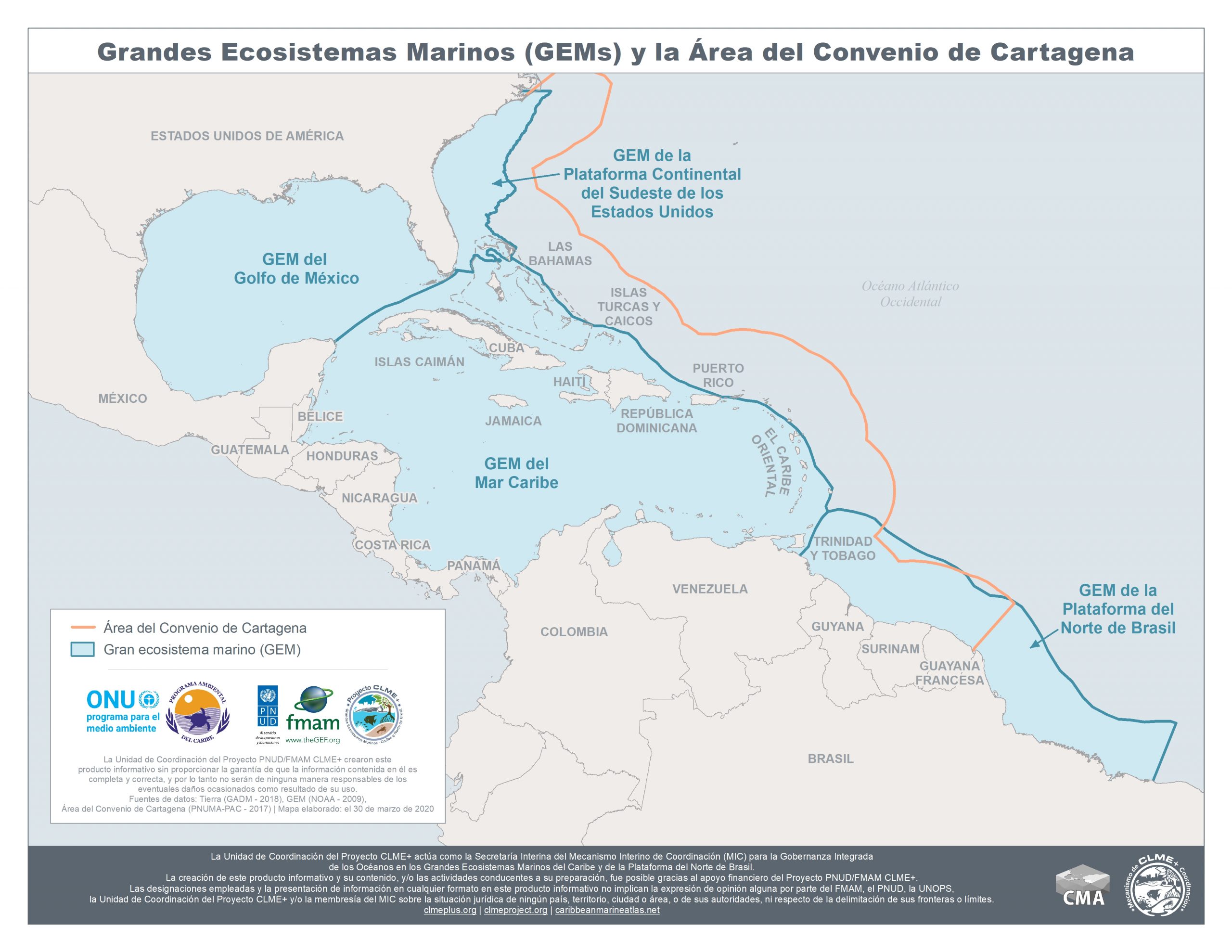
Grandes Ecosistemas Marinos (GEMs) y la Área del Convenio de Cartagena
To date no abstract has been uploaded for this document
 5
5


 Report issue
Report issue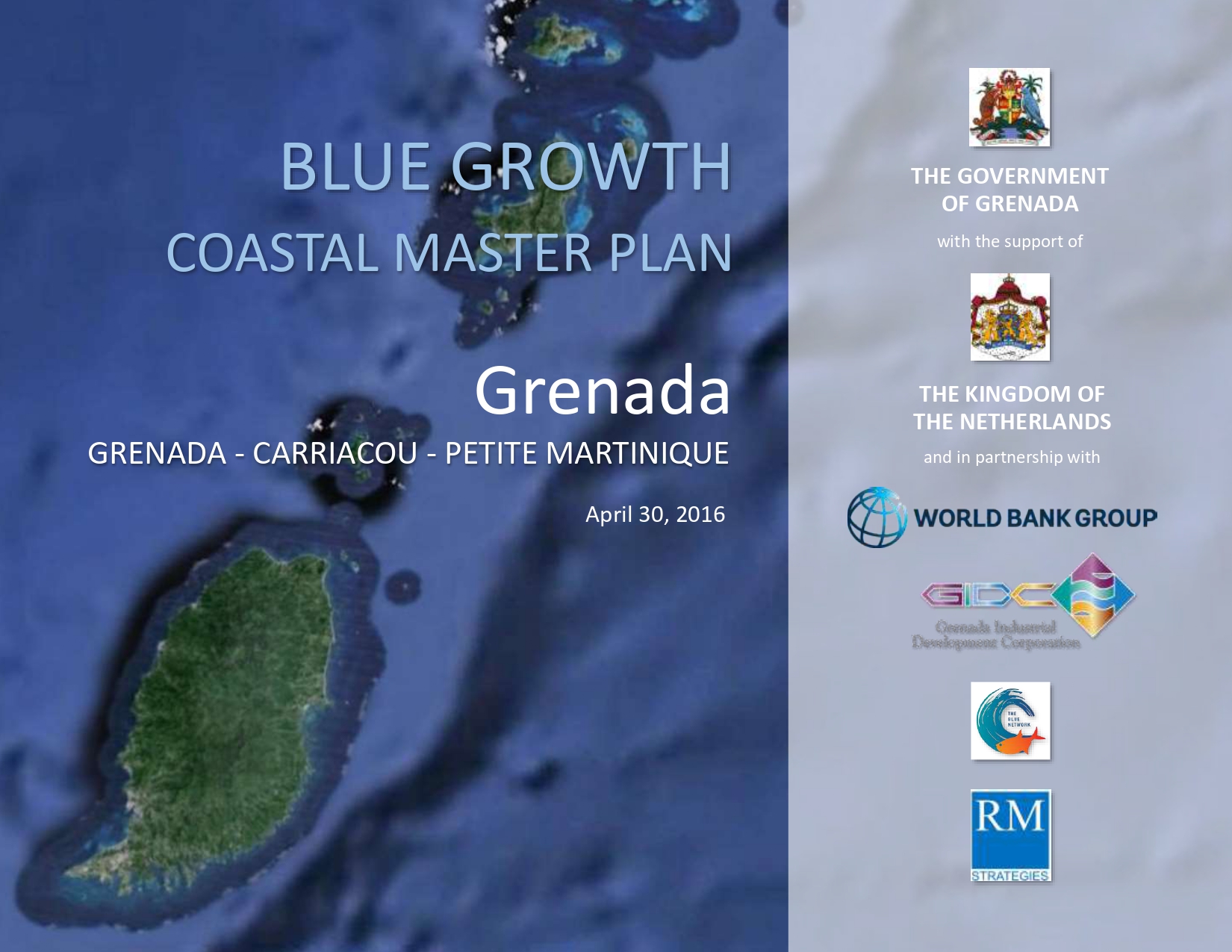
Grenada: Blue Growth Coastal Master Plan
Blue Grenada Master plan is a draft integrated spatial plan for the marine and coastal environments and the economic activities they can support sustainably for the island of Grenada through the Integrated coastal zone management (ICZM) that is a comprehensive approach to the management of the coastal zone that takes account of all of the activities that affect the coastal zone and its resources, dealing with economic and social issues as well as environmental and ecological concerns. Grenada depends largely on tourism as a viable industry to support its economic activities and is one of the world’s leading producers of spices also, ranks second worldwide in the nutmeg market, accounting for 20% of the global supply, and also exports mace, cinnamon and cloves. Over the last quarter- century it has developed a tourism-based service economy, and it now brands itself as “Pure Grenada: The Spice of the Caribbean" Moreover, the plan has the potential to place Grenada at the forefront of blue innovation.
 6
6
 1
1

 Report issue
Report issue

